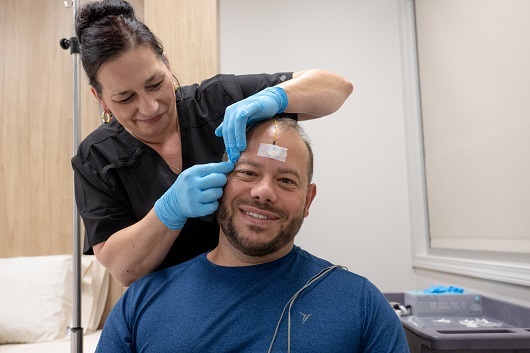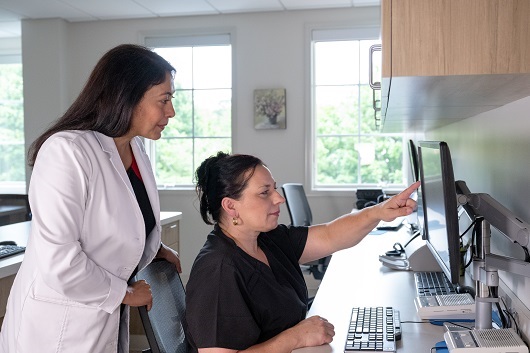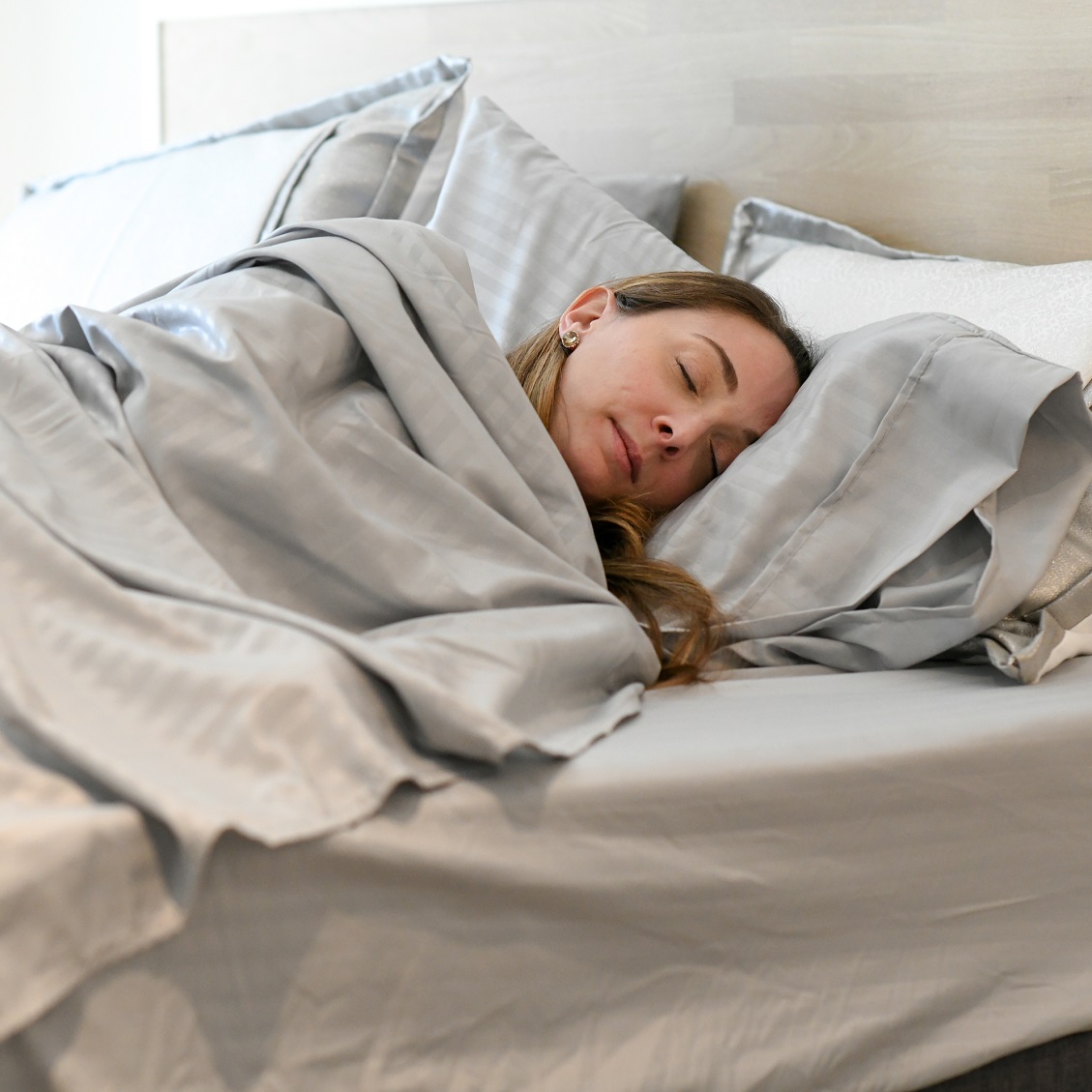What To Expect During a Sleep Study

July 25, 2023
There’s nothing quite like a good night’s sleep. But what can you do when you’re not sleeping through the night or having trouble falling asleep?
A sleep study can determine what could be causing disruptions or discomfort in your sleep and help to find a solution or a way to better manage your symptoms.
What is a sleep study?
A sleep study is an examination of your sleep that typically takes place overnight, where doctors will monitor what’s going on in your brain and body. Most sleep studies take place in a “sleep lab,” which can be in a sleep center, a hospital and even a hotel.
While you are sleeping, an EEG (electroencephalogram) monitor will record the electrical activity in your brain.
- This activity can show doctors changes in your brain and help them to follow you through the different stages of sleep you experience.
- It can also signify the cycles of REM and nonREM sleep, which can show your sleep patterns and help to identify any disruptions in your sleep and what is causing them.
Sleep studies are not solely focused on your brain, though. During the test, doctors will also be monitoring your eye and body movements, snoring, oxygen levels in your blood and heart and breathing rates.
It is important to note that sleep studies are non-invasive, meaning that you won’t have anything that would need to penetrate or break through your skin.
Here's a general overview of what happens during a sleep study:
- Preparations: Before the study begins, you will be asked to arrive at the sleep center. You can bring your usual sleepwear, toiletries, and any necessary medications. The sleep technologist will provide you with instructions and may ask you to fill out some paperwork.

- Set-up: Once you're ready for bed, the sleep technologist will attach various sensors and electrodes to different parts of your body. These sensors are painless and non-invasive, and they are used to monitor and record your physiological activities during sleep.
- The sensors commonly used include electrodes for measuring:
- brain activity (EEG)
- sensors for eye movements (EOG)
- sensors for muscle activity (EMG)
- sensors for heart rate and rhythm (ECG/EKG).
- Additional sensors may be placed to measure breathing patterns, oxygen levels, and snoring.

- Monitoring: Once all the sensors are in place, the sleep technologist will start recording your sleep data. They will observe you from a separate room and monitor your sleep throughout the night. You will be able to communicate with them through an intercom system if needed.
- Sleep Stage Monitoring: The recorded data is analyzed to determine the different stages of sleep you experience throughout the night. This includes distinguishing between wakefulness, rapid eye movement (REM) sleep, and various stages of non-REM sleep. The sleep stages are identified based on the patterns observed in brain activity, eye movements, muscle tone, and other physiological parameters.
- Event Monitoring: The sleep technologist also pays attention to any abnormalities or events that occur during the sleep study. These may include episodes of snoring, breathing interruptions (apneas), limb movements, and other sleep-related disorders. These events help in diagnosing specific sleep disorders like sleep apnea, periodic limb movement disorder, or narcolepsy.

- Morning Evaluation: Once the study is complete, the sleep technologist will remove the sensors and electrodes. You can freshen up and discuss any concerns or observations you had during the night. The collected data will be analyzed by a sleep specialist, who will interpret the results and provide a diagnosis, if necessary.
Overall, a sleep study aims to gather detailed information about your sleep patterns and physiological activities to identify any sleep disorders that may be affecting your quality of sleep and overall well-being. It plays a crucial role in guiding appropriate treatment and management strategies for sleep-related conditions.
How can I prepare for the sleep study?
“If you are feeling stressed or worried about your upcoming sleep study, you are not alone, that’s very common,” says Adrian Pristas, M.D., pulmonologist and corporate medical director, Centers for Sleep Medicine at Hackensack Meridian Health. “The doctors who will be working with you are used to these concerns and will provide you with reassurance and comfort throughout the process to help ease you through it.”
Feel free to ask questions that will help to put your mind at ease. Sleep technologists will try their best to help you get comfortable.
"It is important to note that you can use the bathroom or move around to get more comfortable as needed – you are not expected to remain in the same position throughout your sleep. Your comfort is key when sleeping at home and when participating in a sleep study," adds pulmonologist, Rana Ali, M.D.
Next Steps & Resources:
- Our sources: Adrian Pristas, M.D. and Rana Ali, M.D.
- To make an appointment near you, call 800-822-8905 or visit our website.
The material provided through HealthU is intended to be used as general information only and should not replace the advice of your physician. Always consult your physician for individual care.






